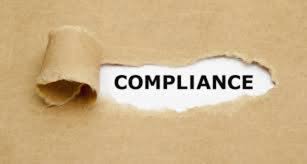DOJ Compliance Program Certification Requirements (Part I of III)

The Department of Justice continues to respond to the compliance community’s concerns about the new certification requirement adopted as part of the Glencore FCPA enforcement action. DOJ has adopted this new requirement to “empower” CCOs and to ensure that CCOs have a “seat at the [senior management] table.” While these are all laudable goals, CCOs continue to question whether DOJ’s new certification requirement will undermine their authority by opening CCOs to internal pressure to execute a certification despite concerns about the status of a company’s compliance program.
Aside from this general set of concerns, the mechanics of the certification form itself raises potential criminal liability for CCOs under 18 USC §1001 for False Statements and 18 USC §1519 for Obstruction of Justice. While the certification form does include aggressive provisions that will facilitate potential criminal prosecution of CCOs for a false representation, DOJ has suggested that it will exercise prosecutorial discretion to ensure that any prosecution of a CCO will rest on findings of serious misconduct.

[A]ware of the Company’s compliance obligations under [Paragraphs 9 and 10, and attachment C of the Plea Agreement] and that based on [the CEO’s and CCO’s] review and understanding of the Company’s anti-corruption compliance program, the Company has implemented an anti-corruption compliance program that meets the requirements set forth in Attachment C to the [Plea Agreement]. [The CEO and CCO] hereby certify[] that such anti-corruption compliance program is reasonably designed to detect and prevent violations of the Foreign Corrupt Practice Act and other anti-corruption laws throughout the company’s operations.
[The CEO and CCO] hereby certify that they are respectively the [CEO and Head of Compliance] of [the Company] and that each has been duly authorized by the Company to sign this Certification on behalf of the Company.
This Certification shall constitute a material statement and representation by the undersigned and by, on behalf of, and for the benefit of, the Company to the executive branch of the United States for purposes of 18 U.S.C. §1001, and such material statement and representation shall be deemed to have been made in the Southern District of New York. This Certification shall also constitute a record document or tangible object in connection with a matter jurisdiction of a department and agency of the United States for purposes of 18 U.S.C. §1519, and such record, document, or tangible object shall be deemed to have been made in the Southern District of New York.
Attachment H.
Beginning with the substance of the Certification itself, the form incorporates by reference Paragraphs 9 and 10 of the Plea Agreement, along with Attachment C to the Plea Agreement. Paragraph 9 requires the Company to implement [and continue to implement] a compliance and ethics program that, at a minimum, meets the standards set forth in Attachment C to [the Plea Agreement].

Under Paragraphs 9 and 10, the Company is required to:
(a) design a program to “prevent and detect” violations of the FCPA, including those of its affiliates, agents, and joint ventures and those contractors and subcontractors [who interact with foreign officials on behalf of the Company];
(b) review its accounting controls, policies and procedures relating to compliance with the FCPA and other anti-corruption laws, and modify these items to ensure that the Company maintains “an effective system of internal accounting controls” and a “rigorous anti-corruption compliance program” designed to “effectively detect and deter violations of the FCPA and other anti-corruption laws.”
The terms of the Plea Agreement, with reference to the Certification and Attachment C, incorporate language and standards that are more stringent than the FCPA itself. That is not surprising and completely within the discretion of prosecutors as part of a Plea Agreement, given the fact that the Company has already violated the FCPA.
It is common, and indeed completely justifiable, that the DOJ will impose compliance requirements and standards that may exceed the requirements of the law itself. In the case of Glencore, given the systemic and pervasive nature of its FCPA violations, DOJ was more than justified to impose these types of requirements.
















1 Response
[…] Source link […]